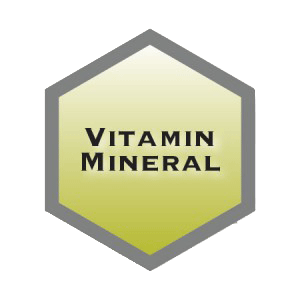Horse Vitamins and Minerals Supplement
Meeting your Horse’s Nutritional Needs… Don’t take chances with his diet.

Performance horses are burdened with demands that nature never intended. The nutritional demands of a performance horse can be several times those of a horse grazing in the pasture. Grand Vite, a time-tested horse vitamins and minerals supplement since 1985, has been designed to specifically meet the extra nutritional needs of the performance horse.
Here’s the real scoop on Horse’s Vitamins and Minerals Supplement…
Vitamins play a number of key roles in the diet of the horse. Vitamins are organic, meaning that they consist of complexes of living enzymes. They are needed for healthy body tissue and energy. They are also important in supporting the immune system, are antioxidant, wound-healing, and support vision, growth, fertility, blood, bone, muscle, ligament, and connective tissue formation, to name a few.
Minerals are essential for the construction of the horse’s skeleton and, equally important, for the maintenance of the skeletal and other body functions throughout the horse’s life. They are involved in enzyme production, energy transfer, soft tissues, and many interactions with vitamins, hormones, and amino acids. They are available commercially in both inorganic and organic forms – organic being bioavailable for the horse and more expensive and inorganic being cheaper with a very poor absorption profile.
Horse vitamins and mineral supplements are crucial for horses. They support vital functions, enhance performance, and ensure robust health. They aid in digestion, bone strength, and immune defense and are essential for longevity.
Find the essential ingredients in Grand Meadow’s horse vitamins and minerals supplements below.
Horse Vitamins
Horse Mineral Supplement
Amino Acids
Amino acids are the building blocks of proteins. They band together in chains to help form the horse from the very beginning. Think of amino acids as Legos for your horse. It’s a two-step process: amino acids get together and form peptides or polypeptides and it is from these groupings that proteins are made. Amino acids are essential to nearly every bodily function. Every chemical reaction that takes place in your body depends on amino acids and the proteins that they build. Lysine and Methionine are the two most important that are regularly included in supplements. At Grand Meadows, a number of our products use a soybean meal base that is an excellent source of these required amino acids.
